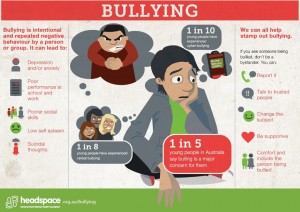
13 December, 2017 | Safety and Security
 The ACCC is warning the community to be wary of scammers trying to ruin their Christmas holidays.
The ACCC is warning the community to be wary of scammers trying to ruin their Christmas holidays.
“Scammers often try to take advantage of people during the busy Christmas period and prey on our vulnerabilities at this time of year. For example, they may take advantage of you looking for a good deal on a family holiday, searching for a loved one’s present at an online store, or even that you’re expecting a present from someone through the post.”
Watch out for three common holiday season scams:
- Travel scams: scammers trick their victims into believing they’ve won a travel prize or scored a really good deal on a travel package, like a cruise. Unfortunately these seemingly too-good-to-be-true holidays are nothing more than a scammer’s con. In the past 12 months, nearly $86,000 has been lost to this scam, with about 1750 reports.
- Online shopping scams: scammers will set up believable looking online stores to trick people into goods that don’t really exist. They might also set up fake online classified or auction site listings. They entice people with legitimate looking discounts and may even advertise items as the perfect Christmas present for a loved one. This scam has cost Australians more than $1.3 million in the past 12 months, with more than 6440 reports.
- Parcel delivery scams: with millions of packages moving across the country to get under a Christmas tree in time, scammers will send fake ‘missed delivery’ notices to potential victims. These scams are aimed at getting people to download malware or ransomware onto their PCs, which can be costly to remove; or steal their personal information. Scamwatch has received about 1700 reports of this scam in the past 12 months.
“Your personal information is often just as valuable to a scammer as your money so always be careful about the information you give out online,” Ms Rickard said.
“There are some simple tips you can follow to stay ahead of scammers these holidays.”
“If a deal seems too good to be true, it probably is. Do your research on any online stores you’re using, especially if it’s for the first time. Never do a deal or make a payment outside the online auction site you are using. If you are buying from a classified website only hand over the money when you have physically inspected the goods. Finally, never open attachments or download files you receive out of the blue—no matter who the email comes from or how legitimate it looks,” Ms Rickard said.
Follow @scamwatch_gov on Twitter and subscribe to Scamwatch radar alerts to get up-to-date warnings.
Source: ScamWatch website (11 December 2017)
12 December, 2016 | National News
[mp_row]
[mp_span col=”3″]
[mp_image id=”1785″ size=”full” link_type=”custom_url” link=”#” target=”false” caption=”true” align=”left”]
[/mp_span]
[mp_span col=”9″]
Watch out for fake parcel delivery scams this Christmas
Scammers are sending emails pretending to be from Australia Post or FedEx, to try and trick you into believing you have an ‘undeliverable package’. In some cases, these emails may include your name and address and include legitimate-looking company information, complete with fake logos.
The email may threaten to charge you a fee for holding your ‘undelivered item’, and will ask you to open an attachment, click a link or download a file to retrieve your parcel. If you follow these instructions, you will likely download a ransomware virus that locks your computer.
To unlock your computer, scammers demand payment in the form of bitcoins (a form of online currency) or wire transfer. Even if you pay the fee, there is no guarantee that you will be able to access your computer again.
Australia Post will never call you out of the blue to request payment or send you an email asking you to click on an attachment.
If you receive an email about an un-deliverable package, don’t open any attachments or download files – delete it straight away!
Find out more at Scamwatch.gov.au
[/mp_span]
[/mp_row]

15 March, 2013 | Safety and Security

Headspace Anti-Bullying Day Info Graphic
Cyberbullying can be an upsetting experience. Check out the infographic from our friends at headspace and have a look at the ThinkUKnow website (https://www.thinkuknow.org.au/kids/helpcyber.asp) for info on what to do if you are bullied online.
What does the law have to say?
Although bullying is not a specific criminal offence in Australian law, criminal and civil laws can apply in terms of, for example, harassment or threatening behaviour, and particularly relevant for cyberbullying – threatening and menacing communications.
Who should I talk to?
Tell an adult you trust about the cyberbullying. This could be a parent or carer, a teacher at your school, an aunt or uncle. If you tell someone they can help make it stop. The records you have saved can then be passed onto the adult you have told.
You should also talk to someone if you’ve been cyberbullying others as well. Chance are, you’re dealing with some heavy stuff and that might explain why you are tempted to cyberbully or can’t help cyberbullying others. You need help and support too!
If you feel you can’t talk to someone in person just yet, call Lifeline (13 11 14) or Kids Helpline (1800 55 1800). For more information and advice you can visit these sites:

 The ACCC is warning the community to be wary of scammers trying to ruin their Christmas holidays.
The ACCC is warning the community to be wary of scammers trying to ruin their Christmas holidays.
